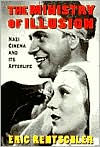Category Books
- Fiction Books & Literature
- Graphic Novels
- Horror
- Mystery & Crime
- Poetry
- Romance Books
- Science Fiction & Fantasy
- Thrillers
- Westerns
- Ages 0-2
- Ages 3-5
- Ages 6-8
- Ages 9-12
- Teens
- Children's Books
- African Americans
- Antiques & Collectibles
- Art, Architecture & Photography
- Bibles & Bible Studies
- Biography
- Business Books
- Christianity
- Computer Books & Technology Books
- Cookbooks, Food & Wine
- Crafts & Hobbies Books
- Education & Teaching
- Engineering
- Entertainment
- Foreign Languages
- Game Books
- Gay & Lesbian
- Health Books, Diet & Fitness Books
- History
- Home & Garden
- Humor Books
- Judaism & Judaica
- Law
- Medical Books
- New Age & Spirituality
- Nonfiction
- Parenting & Family
- Pets
- Philosophy
- Political Books & Current Events Books
- Psychology & Psychotherapy
- Reference
- Religion Books
- Science & Nature
- Self Improvement
- Sex & Relationships
- Social Sciences
- Sports & Adventure
- Study Guides & Test Prep
- Travel
- True Crime
- Weddings
- Women's Studies
Ministry of Illusion: Nazi Cinema and Its Afterlife » (1st Edition)

Authors: Eric Rentschler
ISBN-13: 9780674576407, ISBN-10: 0674576403
Format: Paperback
Publisher: Harvard University Press
Date Published: October 1996
Edition: 1st Edition
Author Biography: Eric Rentschler
Eric Rentschler is Professor of Film Studies at the University of California, Irvine.
Book Synopsis
German cinema of the Third Reich, even a half-century after Hitler's demise, still provokes extreme reactions. "Never before and in no other country," observes director Wim Wenders, "have images and language been abused so unscrupulously as here, never before and nowhere else have they been debased so deeply as vehicles to transmit lies." More than a thousand German feature films that premiered during the reign of National Socialism survive as mementoes of what many regard as film history's darkest hour.
As Eric Rentschler argues, however, cinema in the Third Reich emanated from a Ministry of Illusion and not from a Ministry of Fear. Party vehicles such as Hitler Youth Quex and anti-Semitic hate films such as Jew Süss may warrant the epithet "Nazi propaganda," but they amount to a mere fraction of the productions from this era. The vast majority of the epoch's films seemed to be "unpolitical"—melodramas, biopix, and frothy entertainments set in cozy urbane surroundings, places where one rarely sees a swastika or hears a "Sieg Heil."
Minister of propaganda Joseph Goebbels, Rentschler shows, endeavored to maximize film's seductive potential, to cloak party priorities in alluring cinematic shapes. Hitler and Goebbels were master showmen enamored of their media images, the Third Reich was a grand production, the Second World War a continuing movie of the week. The Nazis were movie mad, and the Third Reich was movie made. Rentschler's analysis of the sophisticated media culture of this period demonstrates in an unprecedented way the potent and destructive powers of fascination and fantasy. Nazi feature films—both as entities that unreeled in moviehouses during the regime and as productions that continue to enjoy wide attention today—show that entertainment is often much more than innocent pleasure.
Graham McCann - Times Higher Education Supplement
[A] quite exceptional new book...[Nazi cinema] is an issue which is, in fact, far more urgent, and more topical, than it may at first appear. The cinema of Hitler, far from perishing with the passing of the Third Reich, continues to thrive...One is grateful to Rentschler both for producing such a well-researched, thorough and thoughtful book, and for doing to with such constructive energy, fine style and subtle wit. Any serious student either of film or of the Third Reich will learn a great deal from this splendid new account.
Table of Contents
| Preface | ||
| Abbreviations and Special Terms | ||
| Introduction: The Power of Illusions | 1 | |
| 1 | A Legend for Modern Times: The Blue Light (1932) | 27 |
| 2 | Emotional Engineering: Hitler Youth Quex (1933) | 53 |
| 3 | Home Sweet Heimat: The Prodigal Son (1934) | 73 |
| 4 | Hollywood Made in Germany: Lucky Kids (1936) | 99 |
| 5 | Astray in the New World: Lat Habanera (1937) | 125 |
| 6 | The Elective Other: Jew Suss (1940) | 149 |
| 7 | The Fuhrer's Phantom: Paracelsus (1943) | 171 |
| 8 | Self-Reflexive Self-Destruction: Munchhausen (1943) | 193 |
| Epilogue: The Testament of Dr. Goebbels | 215 | |
| Appendix A | Films and Events, 1933-1945 | 225 |
| Appendix B | Directorial Filmographies | 272 |
| Appendix C | American Film and Videotape Sources | 293 |
| Notes | 299 | |
| Bibliography | 389 | |
| Index | 445 |
Subjects
 Books on Film
Books on Film  Film History & Criticism
Film History & CriticismEntertainment
 Books on Film
Books on Film  International Film
International FilmEntertainment
 Media
Media  Media - General & Miscellaneous
Media - General & MiscellaneousNonfiction
 Social Sciences
Social Sciences  Media & Communications
Media & CommunicationsPolitical Books & Current Events Books
 All Politics
All Politics  Political Theory & Ideology
Political Theory & IdeologyPolitical Books & Current Events Books
 All Politics
All Politics  General & Miscellaneous
General & MiscellaneousScience & Nature
 Social Sciences
Social Sciences  Media & Communications
Media & CommunicationsSocial Sciences
 Media & Communications
Media & Communications  Media - General & Miscellaneous
Media - General & MiscellaneousNonfiction
 Entertainment
Entertainment  Books on Film
Books on FilmNonfiction
 Entertainment
Entertainment  Media
MediaNonfiction
 Politics & Current Affairs
Politics & Current Affairs  All Politics
All Politics
